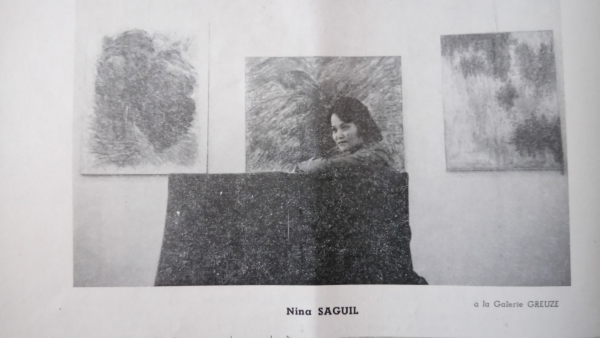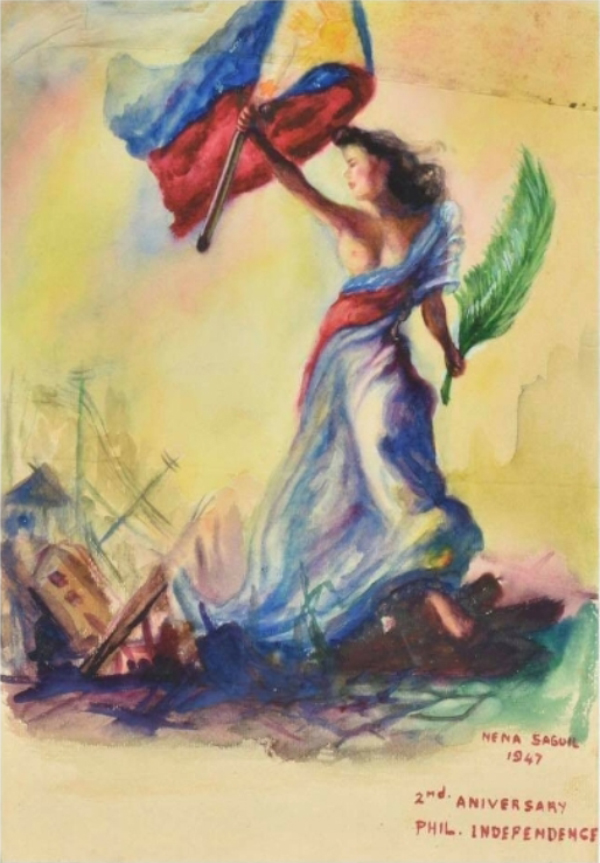Research grant Chaire Global South(s) at la Maison des Sciences de l’Homme
For the second year in a row, Villa Vassilieff and the Collège d’études mondiales / Fondation Maison des Sciences de l’Homme are launching a call for applications for a research residency dedicated to Non-Western based researchers in the humanities and social sciences.
Description of the grant
Patrick Flores will work both in connection with the Global South(s) research chair at the Collège d’études mondiales within Fondation Maison des Sciences de l’Homme and with the team at Villa Vassilieff. The research project proposals will have to relate to the topics of the Collège d’études mondiales and to one of the following themes developed by the Chair Global South(s):
![]() Study the circulation of ideas and models of artistic and cultural production between Europe and the world.
Study the circulation of ideas and models of artistic and cultural production between Europe and the world.
![]() Study within a critical perspective the different modes of representation of the "other".
Study within a critical perspective the different modes of representation of the "other".
In 2018-2019 we are looking to raise the issue of artistic production in difficult conditions, such as conflict, migration, political censorship as well as natural disasters ... We will favour research projects questioning the role of art as a tool for mediation, reflection or action in situations of crisis.
Villa Vassilieff covers travel costs for the researcher and the Collège d’études mondiales provides a 2 700 euros grant for a 4 weeks research.
The resident has access to the rich network of academic and artistic institutions built by Villa Vassilieff and Maison des Sciences de l’Homme, and will be offered a customized guidance through meetings with researchers and art professionals. The resident will also benefit from the various research programs developed by Villa Vassilieff with museums, public and private archives, universities - such as the inter-university network Usages des Patrimoines Numérisés, of which Villa Vassilieff has an active role - or art schools; those programs focus on rarely explored ressources. Residents will be invited to contribute to the Collège d’études mondiales and Villa Vassilieff respective events programs.
Admission criteria
The call for applications is closed for 2018.
GRANT HOLDER 2019: PATRICK D. FLORES
The laureate of the call for residency Villa Vassilieff - Collège d’études mondiales (FMSH) is: Patrick D. Flores, Professor (Art History, Theory, Critic, Philippine Art), Department of Artistic Studies, University of the Philippines, Diliman
He will be in residency in Paris in June 2019 and will work in connection with the Global South Chair(s) of the Collège d’études mondiales at the Fondation Maison des Sciences de l’Homme and the Villa Vassilieff team.

- Nena Saguil at Greuze Gallery
Patrick Flores’ research project
“The Spirit and the Sentiment of the Present”: Nena Saguil and Women Artists from the South in Paris
Abstract:
This proposal pursues the work of the Philippine artist Nena Saguil (born in 1924) in Paris. In 1954, Saguil traveled to France to study art, before which she had previously exhibited in Manila, beginning in the late forties. While Saguil is the primary subject here, the discourse generated around her finds a constellation with fellow women artists from other parts of the world beyond Europe and the United States of America. The proposal links up Saguil with Tarsila do Amaral (Brazil), Amrita Sher-gil (India), and Pan Yuliang (China). To gather these women artists who all stayed in Paris in the first half of the twentieth century is to shed light on the history of women artists from the south; and inevitably to offer a model of art historiography that decisively reflects on the categories of gender and the south in the production of a post-colonial (or decolonial) modernity. The proposal converses with efforts to introduce a different cartography of art history: collecting women artists from the south in Paris. That being said, it foregrounds as well an eccentric heterochrony: telling the time of the modern through the work of these artists in Paris across spaces and temporalities within the twentieth century. In doing so, the proposal contributes to a critical reflection on modernity, Paris, and women artists. It is for this reason that the proposal invests in the concept of “interval,” this gap or lapse between an art-historical linearity and idiosyncratic or disruptive practice of post-colonial women artists from the Philippines, Brazil, India, and China.

- Patrick D. Flores at UNESCO archives, 2019

- Nena Saguil, untitled, 1947
La Fondation Maison des Sciences de l’Homme (FMSH) was set up in 1963 by historian Fernand Braudel to promote the study of human societies and research into social and human sciences (SHS), in relation with other disciplines.
Its primary mission is to foster the internationalisation of SHS research by encouraging the mobility and hosting of researchers, developing interdisciplinary and collaborative research projects, disseminating knowledge and promoting research.
It houses and promotes collective research infrastructures and instruments as well as national institutional SHS networks. One of its aims is to host sheltered foundations that share close ties with its social purpose.
A private foundation recognised for its service to the public (FRUP), the FMSH receives funding to carry out its activities related to its missions on a non-profit basis.
More information here.
Le Collège d’études mondiales, (School of World Studies), created in 2011 by sociologist Michel Wieviorka, is an academic centre for the development of projects by international researchers in a firmly multidisciplinary environment.
It promotes new ways of thinking and working: research conducted by the philosopher and the economist, the doctor and the political analyst, the literary expert and the anthropologist all provide mutual stimulation for understanding the changes at play in the contemporary world.
The School’s scientific activity is organised around three key areas: "New norms and institutions", "Rethinking social justice" and "Subjectivities: production and knowledge", designed to study these changes, be they individual or systemic.
The School programme is composed of chairs, initiatives (programme incubation) and research seminars.
More information here.
Share